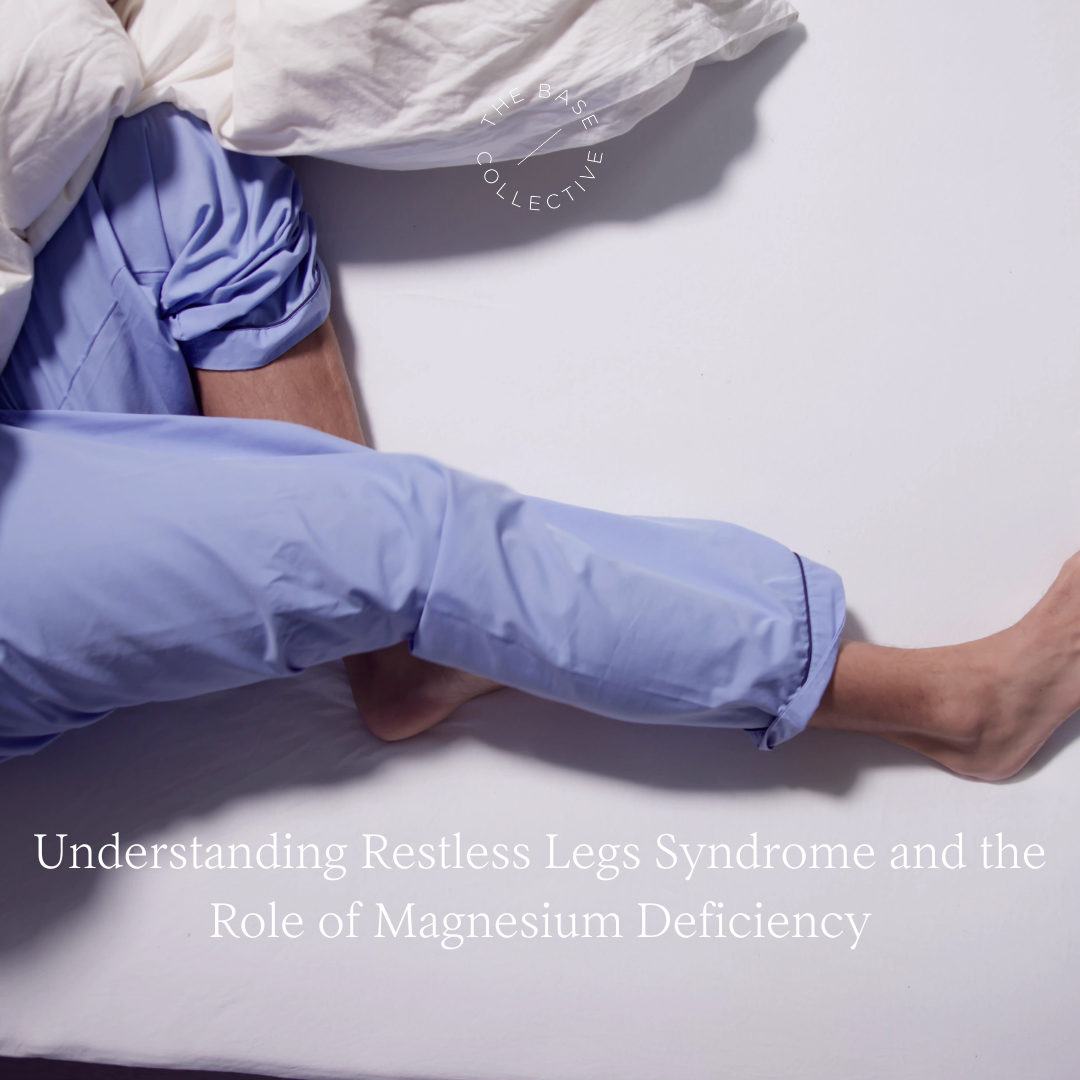
Understanding Restless Legs Syndrome and the Role of Magnesium Spray.
Restless Legs Syndrome (RLS) is a neurological disorder characterized by an uncontrollable urge to move the legs, often accompanied by uncomfortable sensations. These sensations are typically described as crawling, tingling, pulling, or itching, and they usually worsen during periods of inactivity or at night, leading to sleep disturbances. While the exact cause of RLS is unknown, there is growing evidence that magnesium deficiency may play a significant role in the development and exacerbation of this condition. In this blog, we will explore the connection between magnesium deficiency and RLS, and how magnesium spray can help alleviate the symptoms of this troublesome disorder.
What is Restless Legs Syndrome?
RLS, also known as Willis-Ekbom disease, affects millions of people worldwide. It can range from mild to severe, with symptoms that can significantly impact a person's quality of life. The primary feature of RLS is an irresistible urge to move the legs, which is often accompanied by uncomfortable or unpleasant sensations. These symptoms typically occur in the evening or at night and can disrupt sleep, leading to chronic sleep deprivation and its associated health problems.
Symptoms of RLS
- Sensations in the Legs: People with RLS describe a variety of sensations in their legs, including crawling, tingling, burning, or itching.
- Urge to Move: The sensations are accompanied by a strong urge to move the legs to relieve the discomfort.
- Worsening with Inactivity: Symptoms are more pronounced during periods of rest or inactivity, such as sitting or lying down.
- Nighttime Aggravation: Symptoms tend to be worse in the evening and at night, leading to difficulty falling and staying asleep.
- Temporary Relief with Movement: Moving the legs, such as walking or stretching, often provides temporary relief from the symptoms.
Causes of Restless Legs Syndrome
The exact cause of RLS is not well understood, but several factors are believed to contribute to the development of this condition:
- Genetics: There is evidence that RLS can run in families, suggesting a genetic component.
- Iron Deficiency: Low levels of iron in the brain have been linked to RLS - ask your doctor to check your levels.
- Dopamine Dysfunction: Dopamine is a neurotransmitter involved in controlling muscle movements, and dysfunction in dopamine pathways may play a role in RLS.
- Chronic Diseases: Conditions such as diabetes, kidney disease, and peripheral neuropathy have been associated with RLS.
- Medications: Certain medications, including antipsychotics and antidepressants, can trigger or worsen RLS symptoms.
- Pregnancy: Hormonal changes during pregnancy, particularly in the third trimester, can lead to temporary RLS.
The Role of Magnesium in Restless Legs Syndrome
Magnesium is an essential mineral that plays a crucial role in many bodily functions, including nerve transmission, muscle contraction, and relaxation. It is also involved in the regulation of dopamine, a neurotransmitter that is important for movement control. Several studies have suggested that magnesium deficiency may be linked to the development and severity of RLS symptoms.
Magnesium and Muscle Function
Magnesium is vital for muscle function, including the relaxation and contraction of muscles. A deficiency in magnesium can lead to muscle cramps, spasms, and twitching, which are common symptoms of RLS. By ensuring adequate magnesium levels, muscle function can be improved, potentially reducing the severity of RLS symptoms.
Magnesium and Nervous System Health
Magnesium is also essential for the proper functioning of the nervous system. It helps regulate the transmission of nerve signals and is involved in the production of neurotransmitters, including dopamine. Dopamine dysfunction has been implicated in RLS, and ensuring adequate magnesium levels may help support healthy dopamine function, potentially alleviating RLS symptoms.
Magnesium and Sleep
Sleep disturbances are a significant problem for people with RLS. Magnesium plays a role in promoting relaxation and calmness, which can help improve sleep quality. By supporting the body's natural sleep mechanisms, magnesium may help reduce the sleep disruptions caused by RLS.
Magnesium Deficiency and RLS
There is growing evidence that magnesium deficiency may be a contributing factor to RLS. Several studies have found that people with RLS often have lower levels of magnesium compared to those without the condition. Furthermore, magnesium supplements has been shown to improve symptoms in some people with RLS.
Studies on Magnesium and RLS
A study published in the journal "Sleep" found that magnesium supplementation improved sleep quality in people with RLS. The study participants who received magnesium supplements experienced a significant reduction in the severity of their symptoms and reported better sleep quality compared to those who received a placebo.
Another study published in the "Journal of Research in Medical Sciences" found that magnesium supplementation was effective in reducing the symptoms of RLS in pregnant women. The researchers concluded that magnesium could be a safe and effective treatment option for managing RLS symptoms during pregnancy.
How Magnesium Spray Can Help with RLS
Magnesium oil is a topical form of magnesium that can be applied directly to the skin. It is a convenient and effective way to increase magnesium levels in the body, particularly for people who may have difficulty absorbing magnesium through the digestive system. Here are some ways in which magnesium Spray can help alleviate the symptoms of RLS:
Direct Absorption
Magnesium Spray is absorbed through the skin, bypassing the digestive system. This can be particularly beneficial for people with digestive issues or those who have difficulty absorbing magnesium from oral supplements. By applying magnesium spray directly to the affected areas, it can be absorbed more efficiently and provide faster relief from RLS symptoms.
Muscle Relaxation
Magnesium Spray can help relax muscles and reduce muscle cramps, spasms, and twitching. By promoting muscle relaxation, magnesium oil can help alleviate the uncomfortable sensations associated with RLS and reduce the urge to move the legs.
Improved Sleep
Applying Magnesium Spray before bedtime can promote relaxation and improve sleep quality. By reducing the severity of RLS symptoms and promoting a sense of calmness, Magnesium Spray can help people with RLS get a better night's sleep.
Easy to Use
Magnesium Spray is easy to use and can be applied directly to the skin. It can be sprayed or rubbed onto the legs, making it a convenient option for people with RLS. Regular use of magnesium oil can help maintain adequate magnesium levels and provide ongoing relief from RLS symptoms.
How to Use Magnesium Spray for RLS
To get the most benefit from Magnesium Spray, it is important to use it correctly. Here are some tips for using magnesium oil to alleviate RLS symptoms:
- Apply to Clean Skin: Ensure that the skin is clean and dry before applying magnesium oil. This will help improve absorption.
- Focus on Affected Areas: Apply magnesium spray directly to the legs or other areas where you experience RLS symptoms.
- Massage In: Gently massage the spray into the skin to enhance absorption and promote relaxation.
- Use Regularly: For best results, use magnesium spray regularly. Applying it once or twice a day can help maintain adequate magnesium levels and provide ongoing relief from RLS symptoms. Leave it beside your bed so if you wake at night with an episode of restless legs you can apply for relief.
- Be Patient: It may take some time to see the full benefits of magnesium oil. Be patient and consistent with your use, and you should start to notice improvements in your symptoms over time.
Conclusion
Restless Legs Syndrome can be a challenging condition to live with, but understanding the role of magnesium deficiency and using magnesium spray can offer relief. Magnesium plays a crucial role in muscle function, nervous system health, and sleep regulation, all of which are important for managing RLS symptoms. By ensuring adequate magnesium levels through the use of magnesium spray, people with RLS can experience improved muscle relaxation, reduced symptoms, and better sleep quality. If you are struggling with RLS, consider incorporating magnesium spray into your daily routine to help alleviate your symptoms and improve your quality of life.
The information provided by The Base Collective is not intended to be used as medical advice and should not take the place of professional or medical advice. Always seek the guidance of your doctor or other qualified health professionals with any questions you may have regarding your health or medical condition.
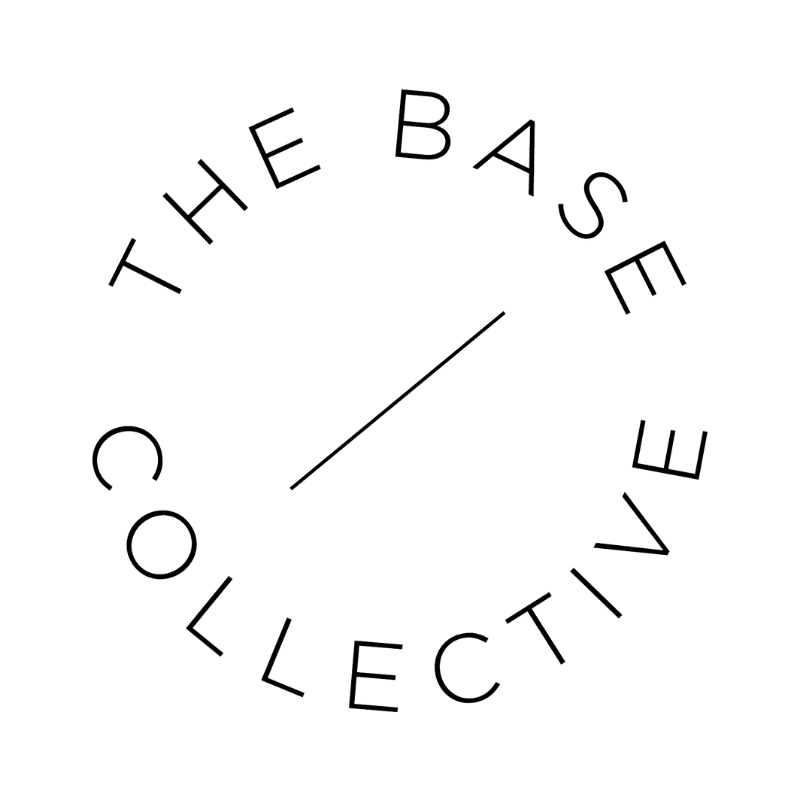
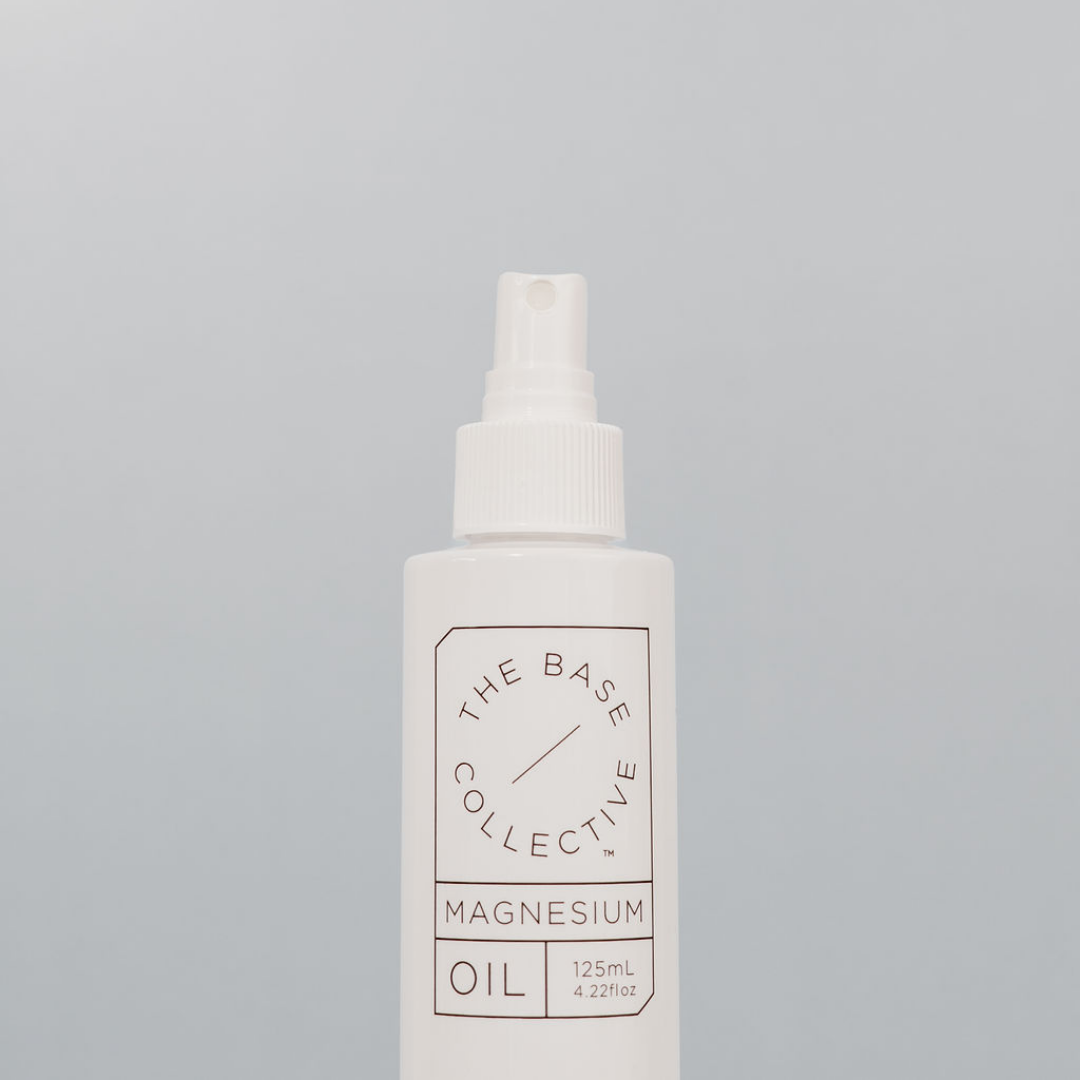
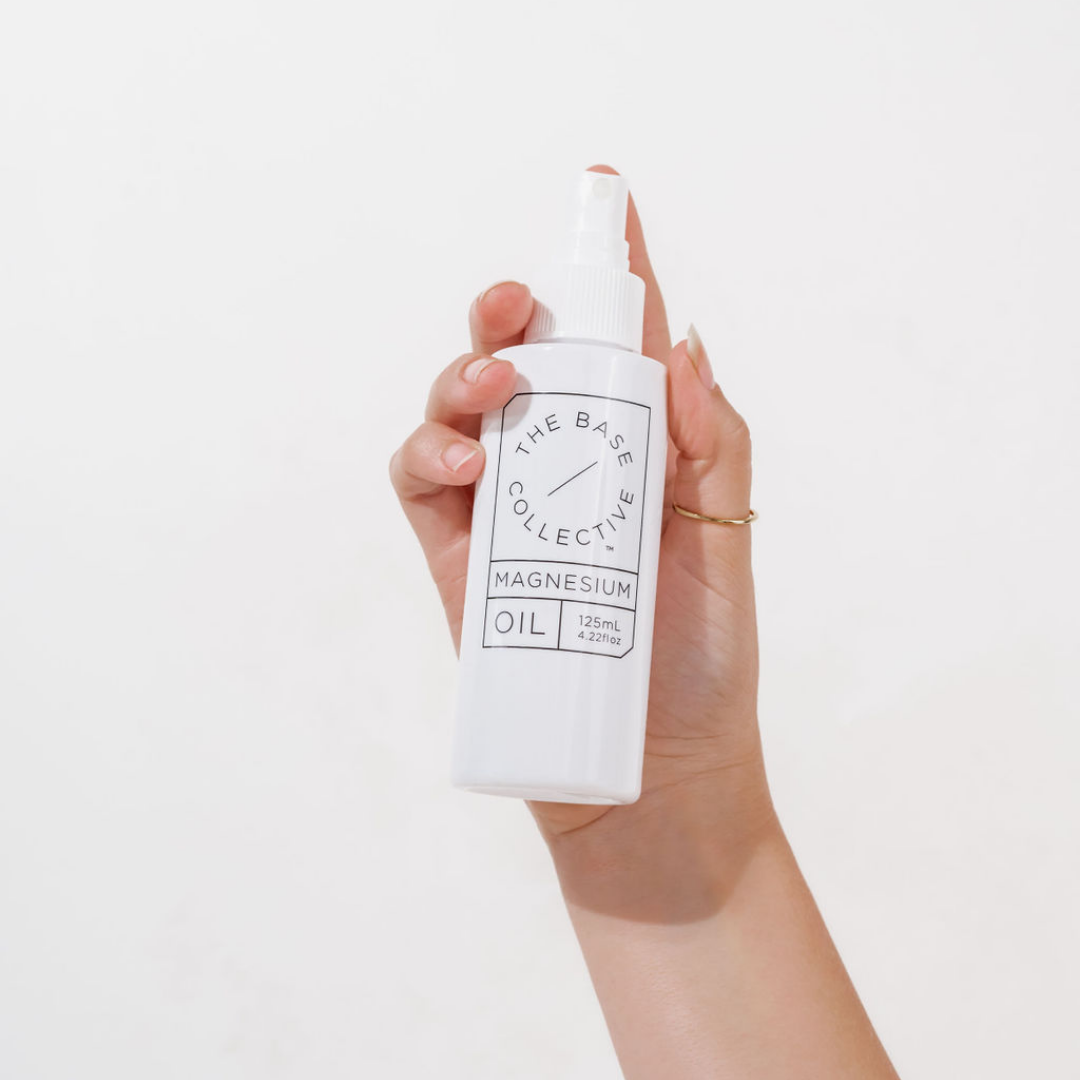
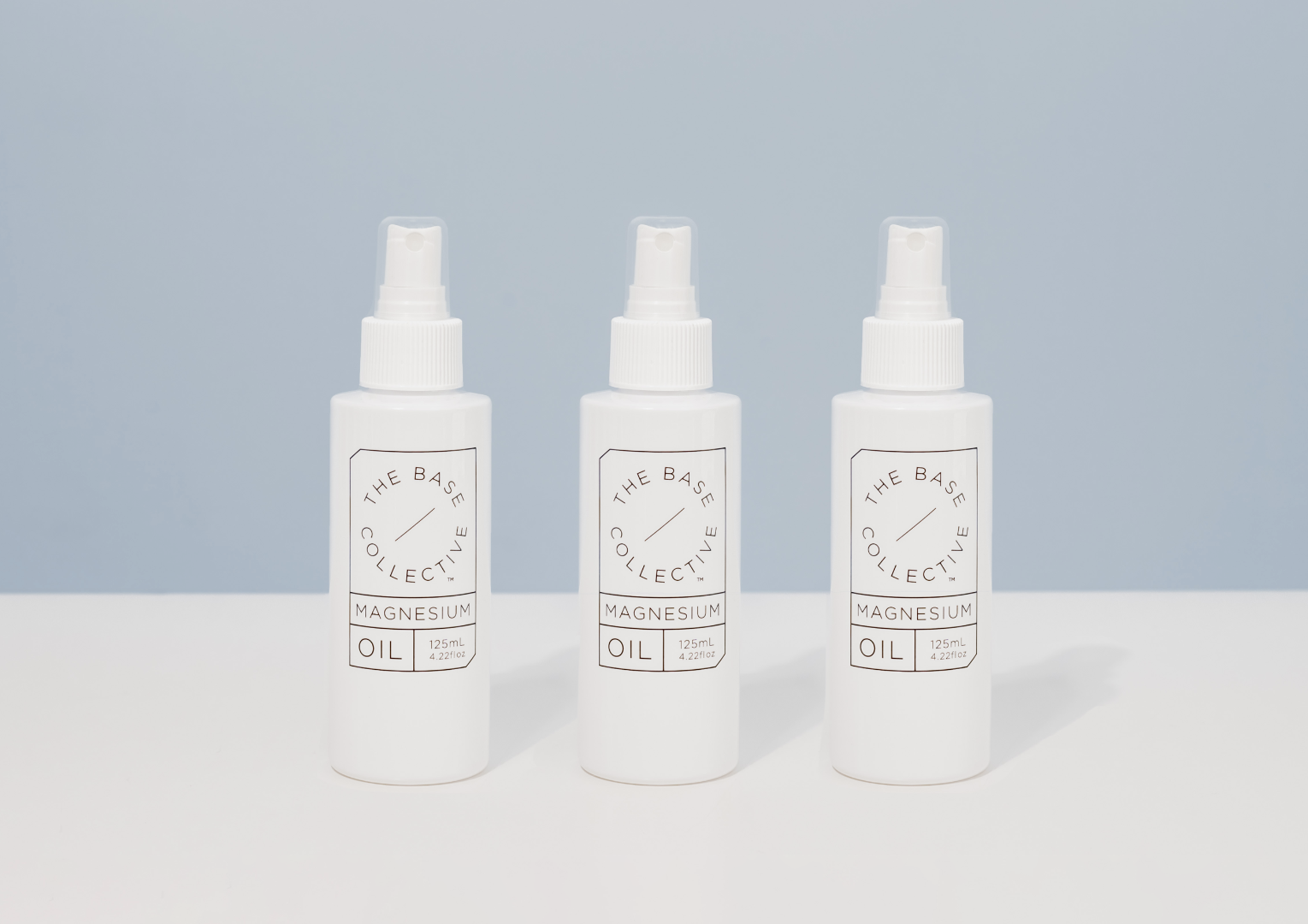
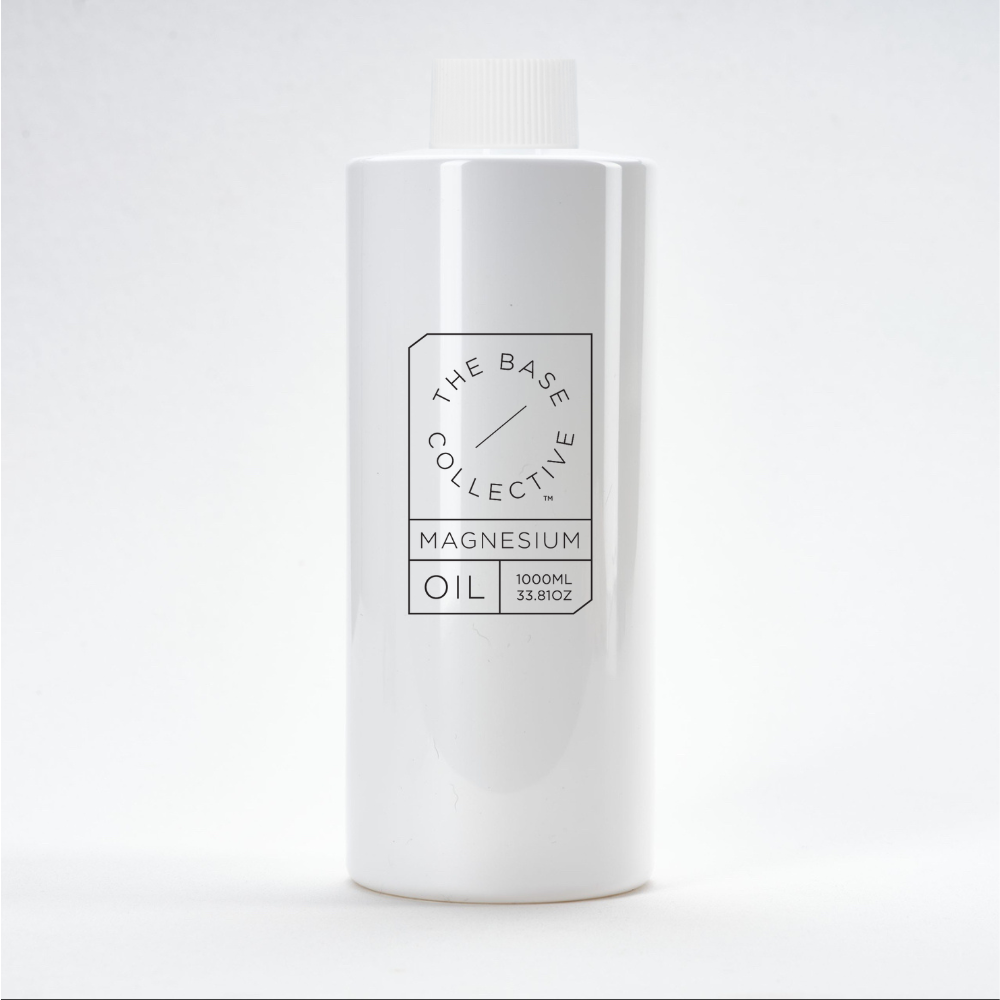
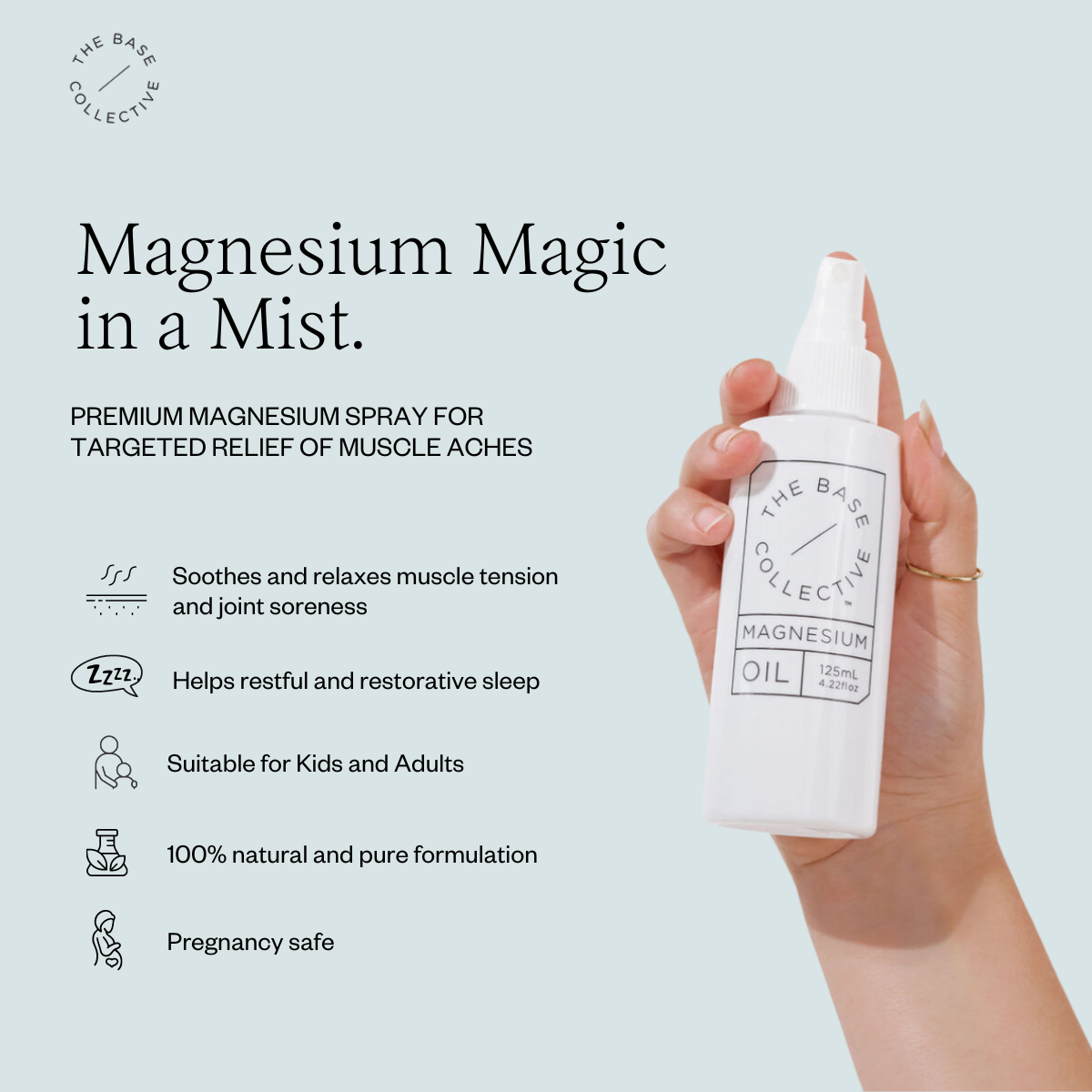

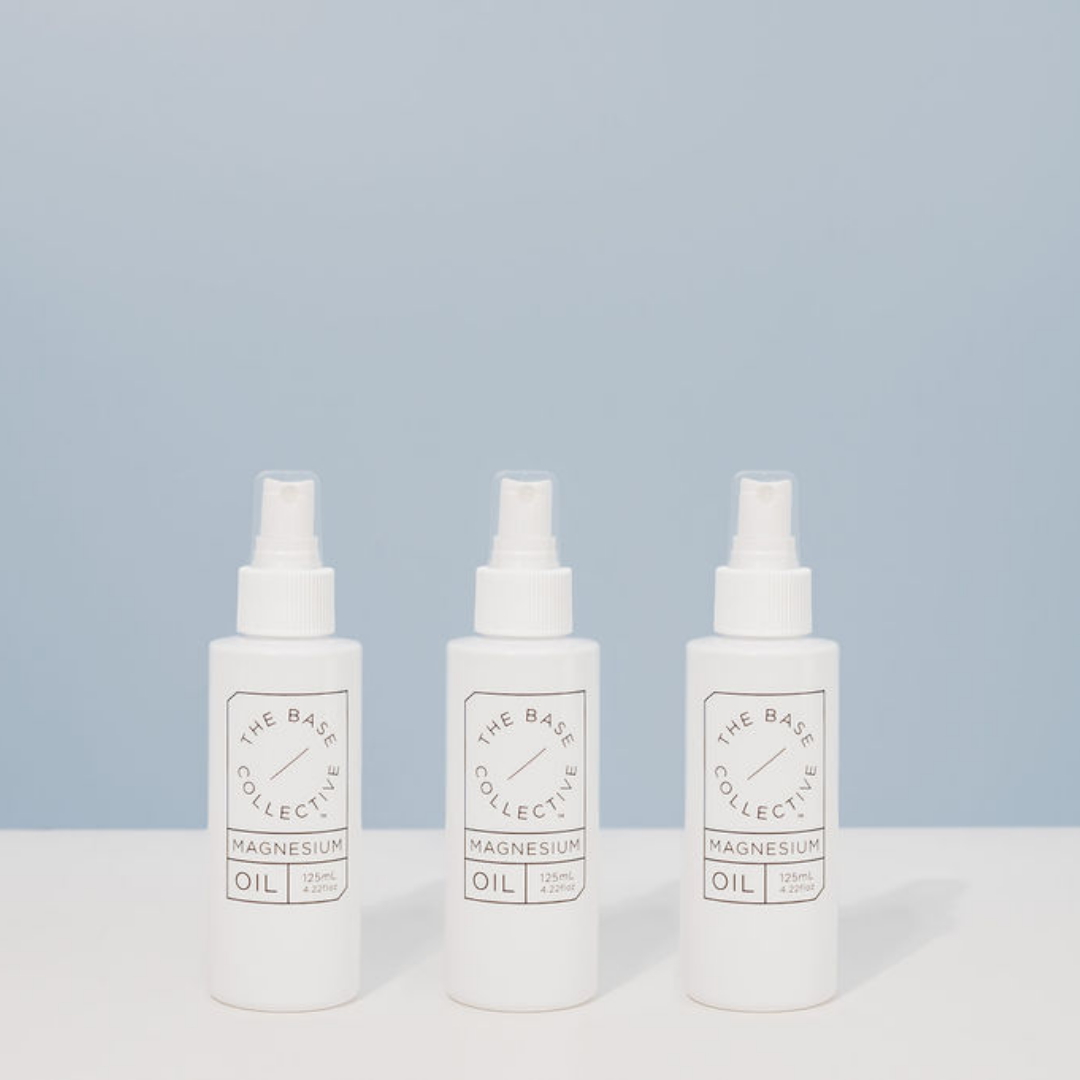
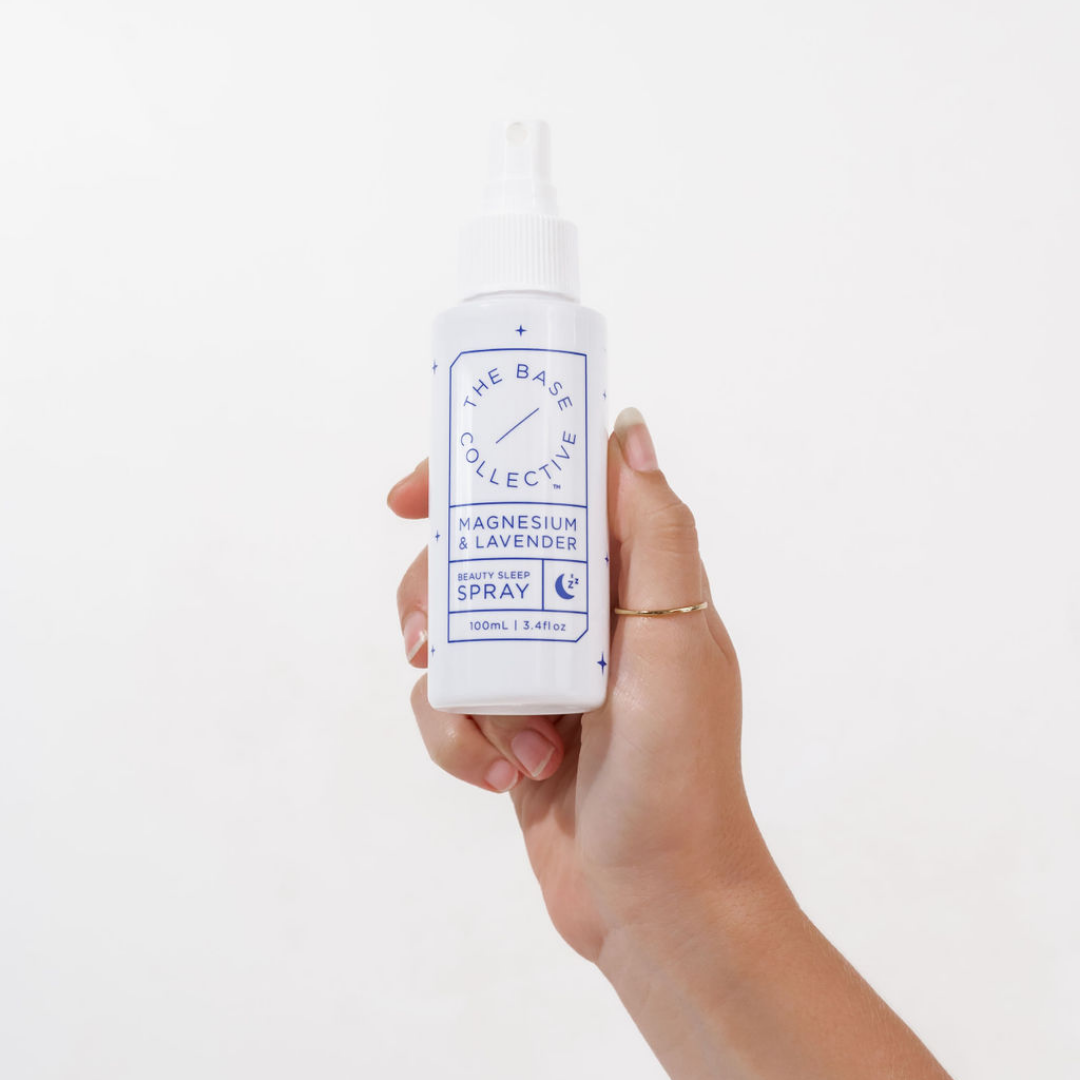

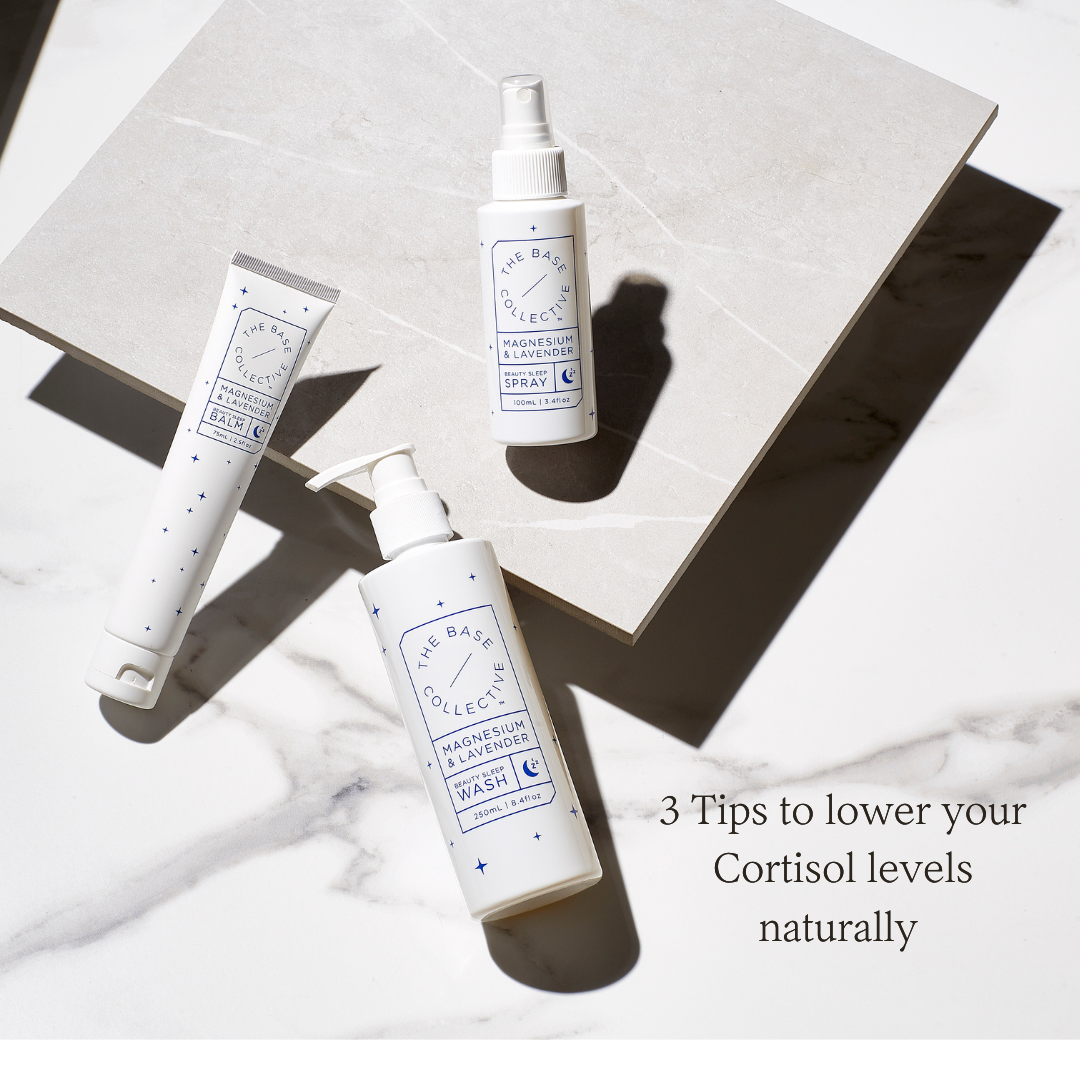
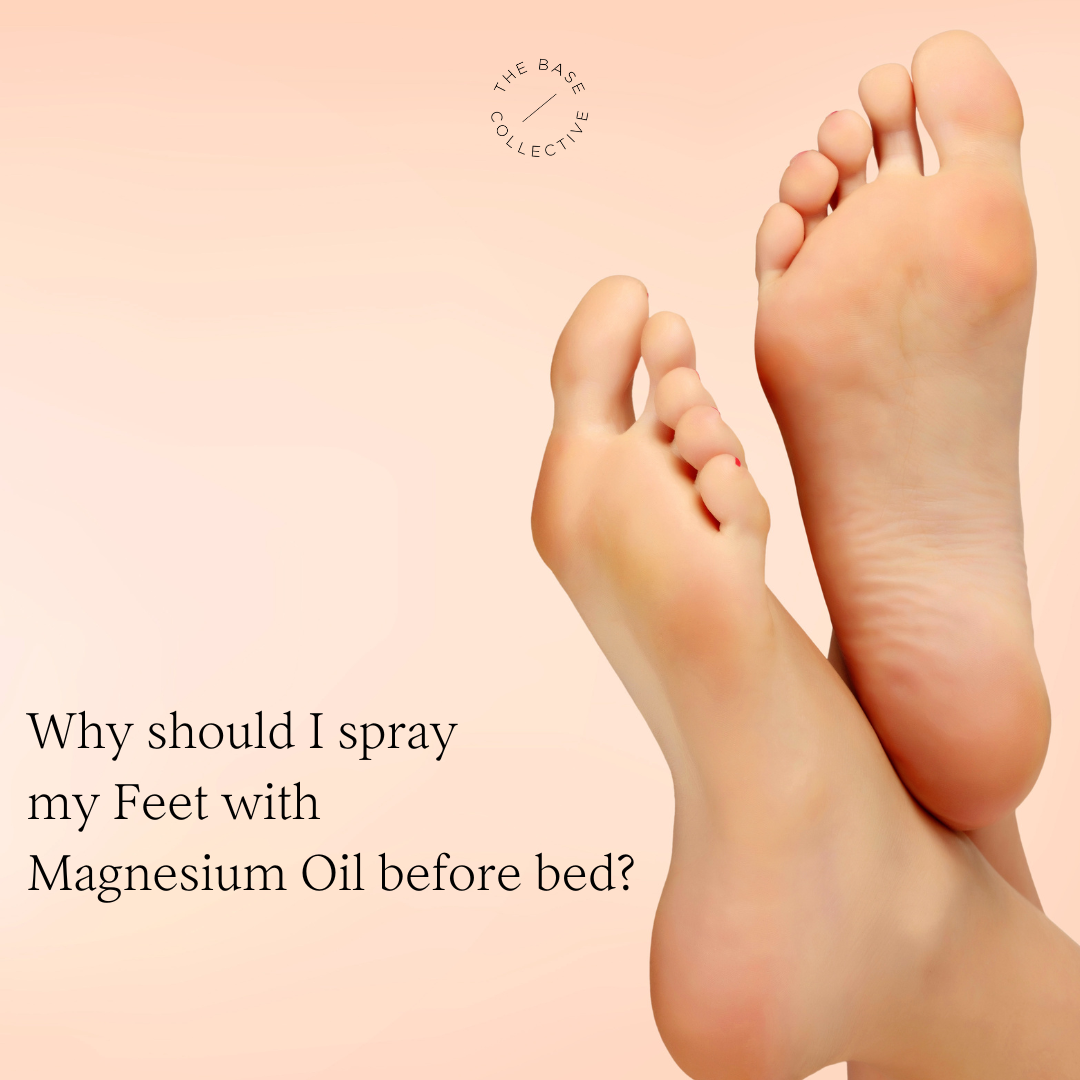
Leave a comment
This site is protected by hCaptcha and the hCaptcha Privacy Policy and Terms of Service apply.